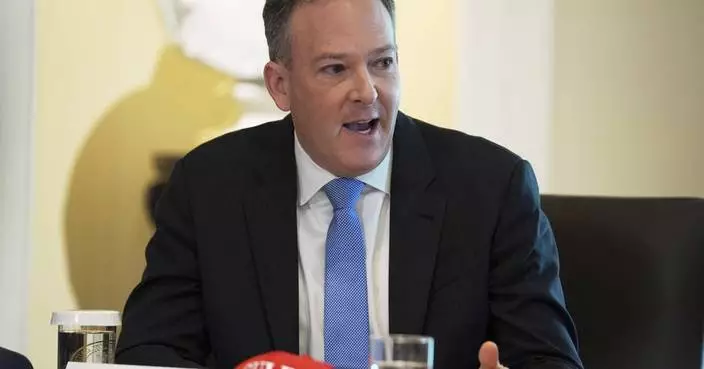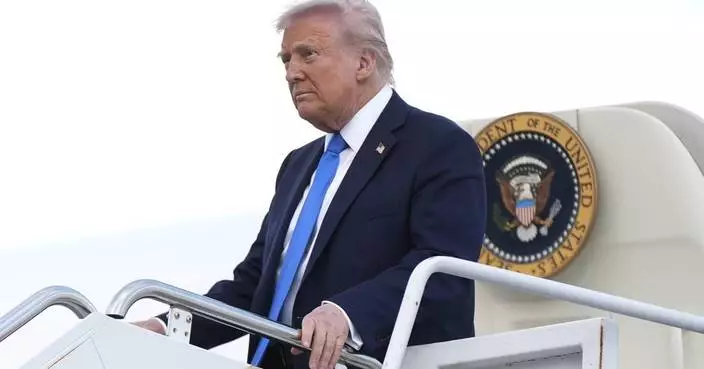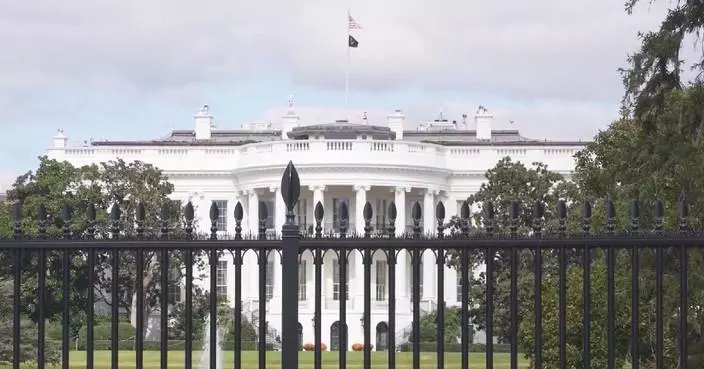FARGO, N.D. (AP) — A former North Dakota lawmaker who was one of the most powerful members of the Legislature is scheduled to plead guilty Thursday in federal court to traveling to Europe with the intent to pay for sex with a minor.
Ray Holmberg, 80, of Grand Forks, was indicted in October 2023 for travel with intent to engage in illicit sexual activity and receipt and attempted receipt of child sexual abuse material.
He signed a plea agreement in June indicating he will plead guilty to the travel charge, and prosecutors will recommend a sentence at the low end of the guideline range and move to dismiss the other charge. Holmberg would have to register as a sex offender.
The travel charge carries maximum penalties of 30 years in prison, a $250,000 fine and lifetime supervised release.
In the plea agreement, Holmberg acknowledged that from around June 2011 to November 2016, he “repeatedly traveled from Grand Forks, North Dakota to Prague, Czech Republic with a motivating purpose of engaging in commercial sex with adolescent-age individuals under the age of 18 years.”
Holmberg has been under numerous conditions of release, including travel restrictions, location monitoring and surrender of his passport.
On Friday, the pretrial services officer filed a report saying Holmberg hadn't met those conditions.
She wrote that he was verbally reprimanded and reminded of his pretrial release conditions after he left his residence once and also visited an adult novelty store, each without approval. He also “continuously” accessed the Internet for unapproved reasons, and did not allow updates and maintenance to the monitoring software on his cellular device, she said.
In May, Holmberg admitted to using alcohol after testing positively. Later that month he was told to remove an unapproved iPad from his home, and the judge added a condition restricting Holmberg's access to electronic devices.
Since then, he continued to access the Internet for unapproved reasons, the officer wrote.
“Due to the statutory mandate of detention, respectfully, the defendant is not viewed as a suitable candidate for self-surrender,” U.S. Pretrial Services Officer Christine Argall wrote.
Holmberg's attorney, Mark Friese, declined an interview request. Holmberg was not arrested.
Former U.S. Attorney Tim Purdon said the report is a routine filing but the alleged violations are serious, given the nature of the Holmberg's case.
“I am particularly troubled by the idea that he's accessing the Internet on unapproved devices that are not being monitored. That is really concerning when you've got somebody facing the charges of the type he was facing,” Purdon said. It is not unusual that Holmberg wasn't arrested, he added.
Holmberg, a Republican, served in the state Senate from 1976 until mid-2022. He initially announced he wouldn't seek reelection, but he resigned following reporting from The Forum of Fargo-Moorhead that he exchanged dozens of text messages with a man in jail for child sexual abuse material.
Holmberg's trial was scheduled to begin in September in Fargo. He initially pleaded not guilty.
For many years, Holmberg chaired the Senate Appropriations Committee, which writes budgets. He also chaired the Legislative Management panel, which handles various business between biennial sessions. That job let him approve his own travel.
Records obtained by The Associated Press showed Holmberg took dozens of trips throughout the U.S. and to other countries since 1999. Destinations included cities in more than 30 states as well as Canada, Puerto Rico and Norway.
Earlier this year, the North Dakota School Boards Association returned about $142,000 to the state and ended its role in the Global Bridges teacher exchange program months after releasing travel records following Holmberg’s indictment that showed he traveled to Prague and other European cities in 2011, 2018 and 2019, utilizing state funds.
It’s unclear whether the misconduct alleged by authorities occurred during any of those trips.
The factors in Holmberg’s case make it arguably the most significant political scandal in North Dakota history, Purdon said.
“You have a very high-profile politician. You have literally the worst allegation you possibly could come up with, the sexual abuse and rape of a child," he said. “And then you have the idea that tax dollars paid for the plane ticket.”

FILE - North Dakota Sen. Ray Holmberg, R-Grand Forks, speaks on the Senate floor at the state Capitol in Bismarck, N.D., in November 2021. (Mike McCleary/The Bismarck Tribune via AP, File)
WASHINGTON (AP) — The White House released President Donald Trump's 2026 budget proposal Friday, hoping to slash, if not zero out, spending on many government programs. It seeks a sweeping restructuring of the nation’s domestic priorities, reflective of the president’s first 100 days in office and sudden firing of federal workers.
Trump's plan aims for steep cuts to child care, disease research, renewable energy and peacekeeping abroad, many already underway through Elon Musk’s Department of Government Efficiency, all while pumping up billions for the administration's mass deportation agenda.
The budget drafters echo Trump’s promises to end “woke programs,” including preschool grants to states with diversity programs. And they reflect his vow to stop the “weaponization of government” by slashing the Internal Revenue Service, even as critics accuse him of using the levers of power to punish people and institutions he disfavors
Overall, it’s a sizable reduction in domestic accounts — some $163 billion, or 22.6% below current year spending, the White House said.
At the same time, the White House said it is relying on Congress to unleash $375 billion in new money for for the Homeland Security and Defense departments as part of Trump’s “big, beautiful bill” of tax cuts and spending reductions. His goal is to repel when he calls a “foreign invasion," though migrant arrivals to the U.S. are at all-time lows.
House Speaker Mike Johnson welcomed the proposal as “a bold blueprint that reflects the values of hardworking Americans and the commitment to American strength and prosperity.”
Budgets do not become law, but serve as a touchstone for the coming fiscal year debates. Often considered a statement of values, this first budget since Trump's return to the White House carries the added weight of defining the Republican president's second-term pursuits, alongside his party in Congress.
It comes as Trump has unilaterally imposed what could be hundreds of billions of dollars in tax increases in the form of tariffs, setting off a trade war that has consumers, CEOs and foreign leaders worried about a possible economic downturn.
Democrats assailed the budget as a devastating foreshadowing of Trump's vision for the country.
“President Trump has made his priorities clear as day: he wants to outright defund programs that help working Americans," said Sen. Patty Murray of Washington, the top Democrat on the Appropriations Committee. This, she said, “while he shovels massive tax breaks at billionaires like himself and raises taxes on middle-class Americans with his reckless tariffs.”
The White House Office of Management and Budget, headed by Russell Vought, a chief architect of Project 2025 from the conservative Heritage Foundation, provided contours of a so-called skinny version of topline numbers only.
It covers only the federal government's discretionary spending, now about $1.83 trillion a year on defense and nondefense accounts. Trump's team drops that spending by $163 billion, to $1.69 trillion, a portion of the nation's nearly $7 trillion budget that includes far more programs and services.
Federal budgets have been climbing steadily, as have annual deficits that are fast approaching $2 trillion with annual interest payments on the debt almost $1 trillion. That’s thanks mostly to the spike in emergency COVID-19 pandemic spending, changes in the tax code that reduced revenues and the climbing costs of Medicare, Medicaid and other programs, largely to cover health needs as people age. The nation’s debt load, at $36 trillion, is ballooning.
“We need a budget that tells the full story, and it should control spending, reduce borrowing, bring deficits down,” said Maya MacGuineas, president of the Committee for a Responsible Federal Budget, a fiscal watchdog group.
Among some of the White House's proposed highlights:
The State Department and international programs would lose 84% of their money and receive $9.6 billion, reflecting deep cuts already underway, including to the U.S. Agency for International Development.
The Health and Human Services Department would be cut by $33.3 billion and the Education Department’s spending would be reduced by $12 billion. The Centers for Disease Control and Prevention and the National Institutes of Health would all face steep reductions.
The Defense Department would get an additional $113.3 billion and Homeland Security would receive $42.3 billion more. Much of that is contingent on Congress approving Trump's big bill. That approach drew criticism from leading defense hawks, among them the former GOP Leader, Sen. Mitch McConnell of Kentucky.
McConnell called the proposed boost in defense money in the president's budget a “gimmick."
“America cannot expect our allies to heed calls for greater annual defense spending if we are unwilling to lead by example," McConnell said in a blistering statement. "Fortunately, Presidential budget requests are just that: requests. Congress will soon have an opportunity to ensure that American power – and the credibility of our commitments – are appropriately resourced."
It's Congress, under its constitutional powers, that decides the spending plans, approves the bills that authorize federal programs and funds them through the appropriations process. Often, that system breaks down, forcing lawmakers to pass stopgap spending bills to keep the government funded and avoid federal shutdowns.
Congress is already deep into the slog of drafting of Trump’s big bill of tax breaks, spending cuts and bolstered funds for the administration’s mass deportation effort — a package that, unlike the budget plan, would carry the force of law.
Vought is also expected on Capitol Hill in the weeks ahead as the Trump administration presses its case.
Among the more skilled conservative budget hands in Washington, Vought has charted a career toward this moment. He served during the first Trump administration in the same role and, for Project 2025, wrote an extensive chapter about the remaking of the federal government.
Vought has separately been preparing a $9 billion package that would gut current 2025 funding for the U.S. Agency for International Development and the Corporation for Public Broadcasting, which involves the Public Broadcasting Service and National Public Radio. Trump signed an executive order late Thursday that instructs the Corporation for Public Broadcasting and federal agencies to cease funding for PBS and NPR.
Vought has said that a package of so-called budget rescissions would be a first of potentially more, as the Trump administration tests the appetite in Congress for lawmakers to go on record and vote to roll back the money.
This story has been corrected to reflect that the administration is proposing to cut the Health and Human Services budget by $33.3 billion, not $33.3 trillion.
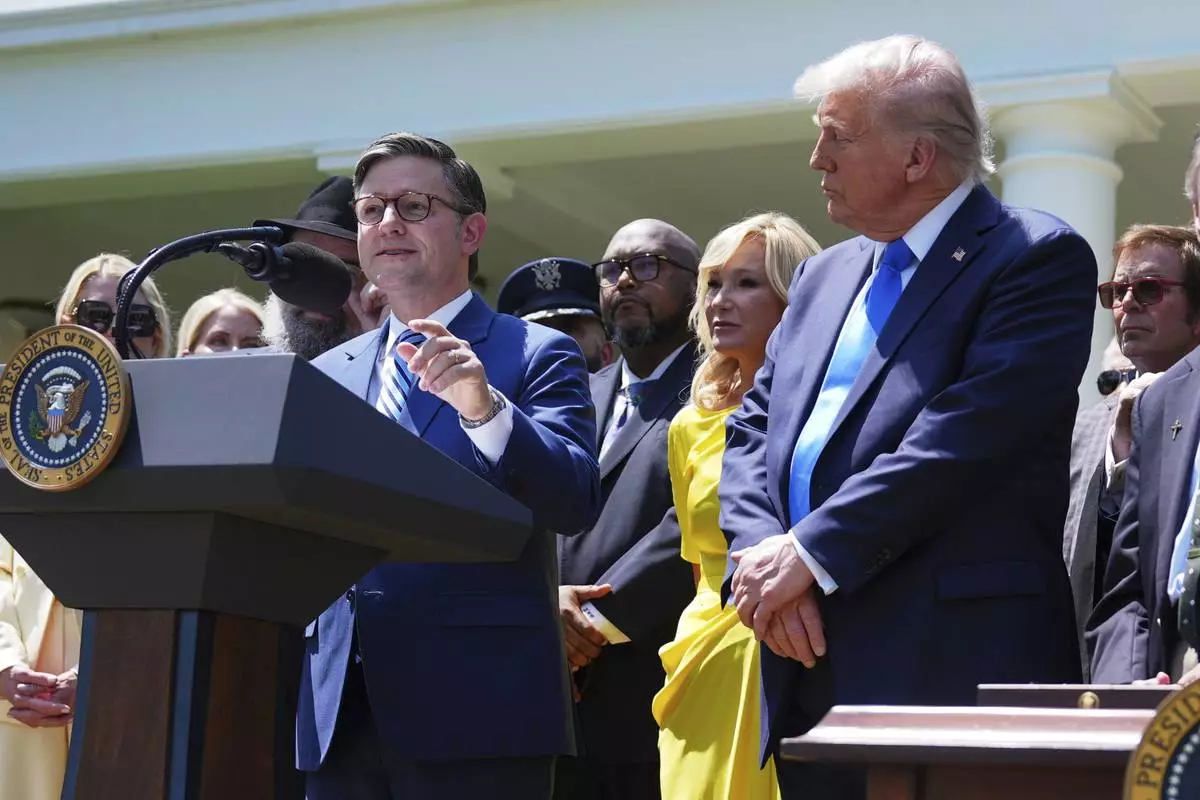
House Speaker Mike Johnson, R-La., speaks as President Donald Trump, right, listens during a National Day of Prayer event in the Rose Garden of the White House, Thursday, May 1, 2025, in Washington. (AP Photo/Evan Vucci)
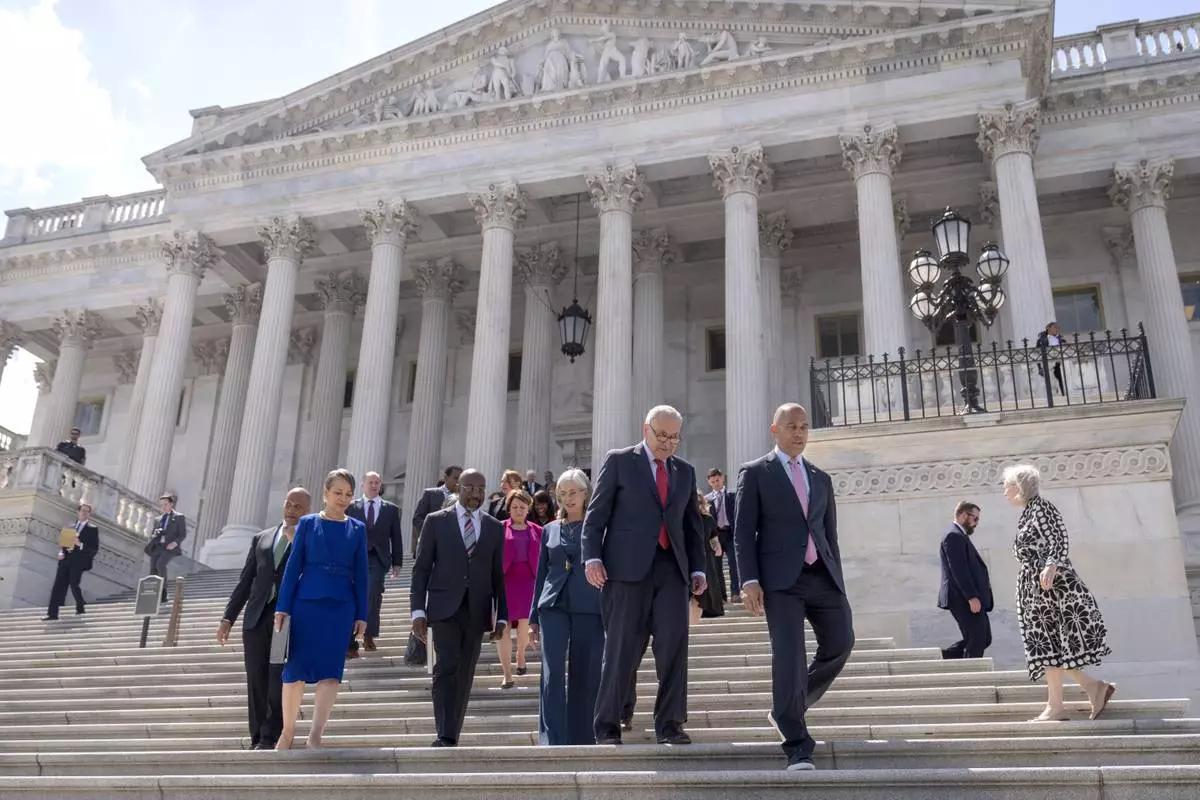
Senate Minority Leader Chuck Schumer, of N.Y., second from right, and House Minority Leader Hakeem Jeffries, of N.Y., right, arrive with other House and Senate Democrats for an event to mark 100 days of President Donald Trump's term on the steps of the Senate on Capitol Hill, Wednesday, April 30, 2025, in Washington. (AP Photo/Mark Schiefelbein)
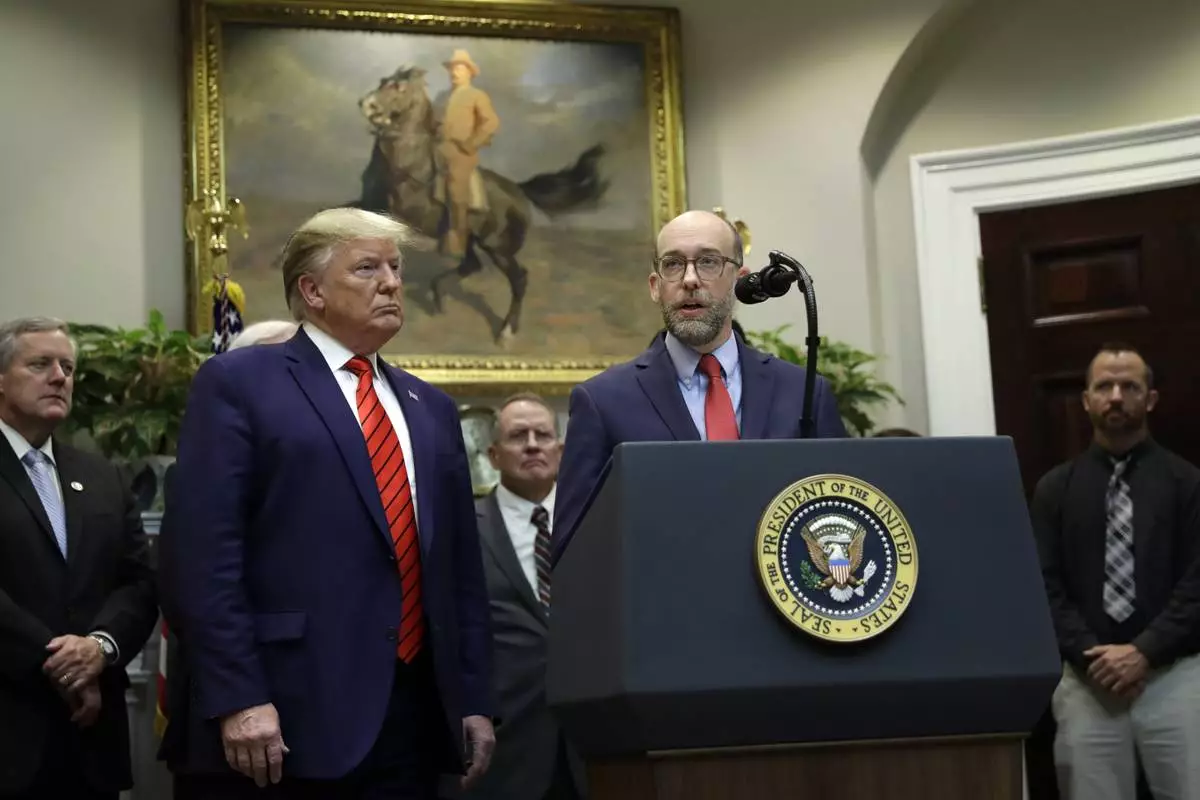
FILE - President Donald Trump listens as acting director of the Office of Management and Budget Russ Vought speaks during an event on "transparency in Federal guidance and enforcement" in the Roosevelt Room of the White House, Oct. 9, 2019, in Washington. (AP Photo/Evan Vucci, File)







